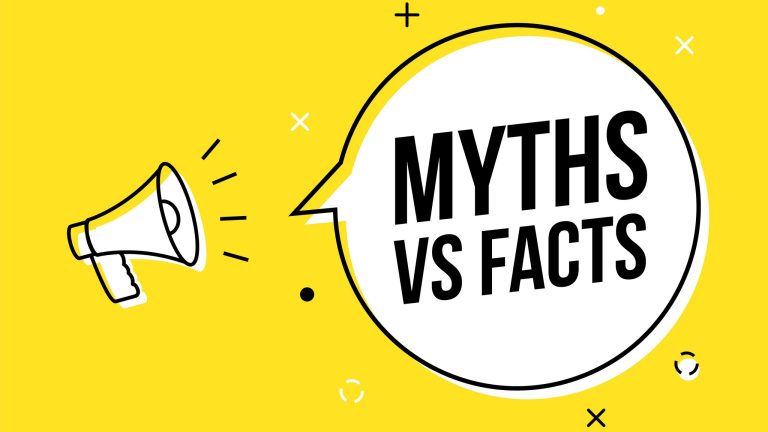In a job interview, both you and your potential boss are checking if it’s a good fit. You’re not just looking for any job, but the right one. Many people find out too late that a job isn’t right for them. Sometimes, the company doesn’t match what they were promised, or the culture clashes with their values, maybe even being toxic.
When you’re job hunting, remember “buyer beware.” This means you should stay alert during interviews. Look out for signs that something might be wrong with the boss, team, or company. But also not be overly skeptical or suspicious. Here are 10 red flags to keep an eye on.
1. Constant rescheduling and disorganization
Rescheduling and disorganization happen when people are busy and unexpected things come up. If an interview needs to be rescheduled once or twice, it’s understandable. But if it keeps happening, it’s a problem. Susan Peppercorn, an executive and career coach, says that if an interview is rescheduled more than twice, it’s too much. Employers need to communicate clearly and quickly with job candidates. Otherwise, candidates might go somewhere else.
2. Disrespecting others
In any workplace, there are often tensions between different teams, like sales and engineering. When you’re interviewing, pay attention to how the people you meet talk about these tensions. Do they discuss challenges respectfully, or do they speak badly about others? If they disrespect others, it’s a red flag. It suggests the organization might have communication problems and low trust.
During a panel interview, where there are multiple interviewers, watch how they interact. Do they interrupt each other a lot? Does one person dominate the conversation? Also, notice their body language, even if it’s a Zoom interview. These cues can tell you a lot about how they work together.
3. Values conflict
When your values clash, it’s a warning sign. Know your top values before interviews and ask questions to understand if the company shares them. For example, if you value inclusion, ask how they ensure an inclusive workplace. If autonomy matters to you, ask about decision-making freedom. Don’t just take their word for it; ask others about their experiences. If answers don’t convince you, be cautious.
4. Lack of clarity or consistency in answers to your questions
During interviews, pay attention to how clearly the interviewer responds to your questions. Vague or unclear answers should raise concerns. Keep asking until you get the specific information you need. Also, ask the same set of questions to different people involved in the process. Look for consistency in their answers. Some differences are fine, but conflicting responses are a warning sign.
5. Bait and switch
It can happen that the job you’re interviewing for turns out to be very different from what was described in the job posting. If the hiring manager doesn’t explain this change clearly, it might mean they’re not good at communicating changes. If the new job description makes the role less interesting to you, it’s something to pay attention to. It could mean the organization is moving too fast without properly explaining things to candidates, which might make you wonder if they really know what they’re doing.
6. Inappropriate questions or comments
In Super Pumped, a series about Uber’s rise, Travis Kalanick’s first interview question was famously rude: “Are you an a**hole?” If you wanted the job, you had to say yes. This shows a toxic work culture. You might not face such a direct question, but you could encounter inappropriate ones. If you’re asked something ageist, sexist, racist, or offensive, it’s a clear sign of bad training or tolerance for bad behavior. This could mean the company hasn’t dealt with unconscious bias in hiring and management.
7. Lack of connection
A good interview should feel like a lively chat where both sides are excited about the chance to work together. But if the interviewer seems uninterested, not smiling, or just going through the motions with scripted questions, it’s a bad sign. They might already have someone else in mind for the job. If the energy changes suddenly between interviews, it could mean they’ve found someone they prefer. This lack of enthusiasm is a red flag, showing they might not be good at communicating or they’ve already made up their mind about the position.
8. Resistance to change (even if they say they want change)
People sometimes resist change, even when they say they want it. When a company has job openings, it’s because they need someone to make things better—like creating better products, making work easier, getting new customers, or making departments work better. But making things better means things have to change.
Even when someone is hired to bring about positive changes in an organization, they may face resistance from higher-ups who prefer things to remain the same. It’s crucial during interviews to ask questions about how different opinions are handled within the company to gauge whether there’s openness to change. Sometimes, despite good intentions, certain managers may be set in their ways and reluctant to embrace new ideas, leading to frustration and demoralization for employees trying to innovate.
9. Excessive number of interviews or drawn-out interview process
Having too many interviews or a long interview process can be a problem. It’s best if the process is quick and involves the right people. When there are too many interviews or it takes too long, it might mean the team can’t make decisions easily or finish tasks.
Usually, higher-level jobs have longer interviews, like for top executives. But having 10 to 12 interviews, or even 14, is too much. It doesn’t make sense, especially for lower-level jobs. It’s better for the hiring manager to decide. Some companies, like Google, are trying to make their interviews shorter to attract good employees.
10. Exploding offers
Exploding offers are like ticking time bombs in job hunting. They’re job offers that come with a tight deadline. If you don’t accept by that deadline, the offer vanishes. Imagine getting a job offer on a Friday and being told you have until Monday to decide. It’s stressful!
These offers force you to choose quickly, often without considering better options. It’s like being pushed into a corner. Accepting them might seem like a relief, but it can backfire. Companies that use exploding offers show they care more about themselves than about you. They’re inflexible and might not treat you well once you’re hired.
When job hunting, watch out for these red flags. Pay attention to how the company handles the process and ask questions. It’s better to be cautious than to make a hasty decision you’ll regret.
This article has been referenced for HBR. To read the complete article click here
About High Potential Career Planning:
An initiative of ACH, High Potential Career Planning (HPCP) is established with a mission to mentor professionals in their search for a career development and growth. We provide personalized mentorship programs, which can help individuals have a fulfilling career.






